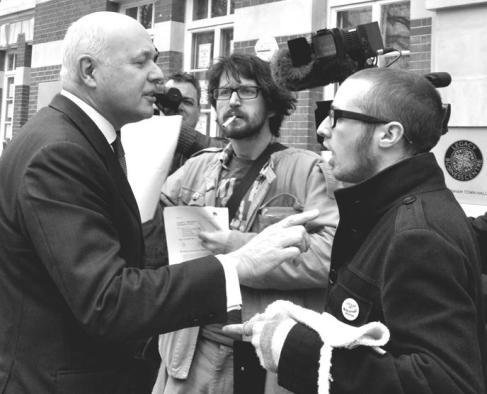On Saturday May 26th around fifty activists from around the country (although mostly the South-East) met in Brighton for a conference entitled ‘how do we break workfare?’. Here, Ollie Sutherland summarises the main conclusions of the conference

What is workfare and why we need to break it
Workfare is a direct and violent attack on regular working people. It is forcing those unemployed into unpaid labour to receive their benefits, claimed to be valuable work experience to make them more employable. However, the labour is things like stacking shelves – hardly valuable work experience, and is given to businesses (big or small) which have no intention of hiring more staff. In fact, because the businesses can get unpaid labour from the JobCentre or private work providers, they can fire existing staff who they have to pay minimum wage for. Some businesses, like Holland & Barrett, have explicitly said this is their aim – to exploit working people, using what is technically slave labour. The scheme originates from the government’s close ties to business: workfare is the state subsidising private companies, as in making people work in private companies to receive their benefits, the state is paying the workers’ wages (£2/hour or lower) while the businesses get free labour. Continue reading “‘how do we break workfare?’ conference report” →













